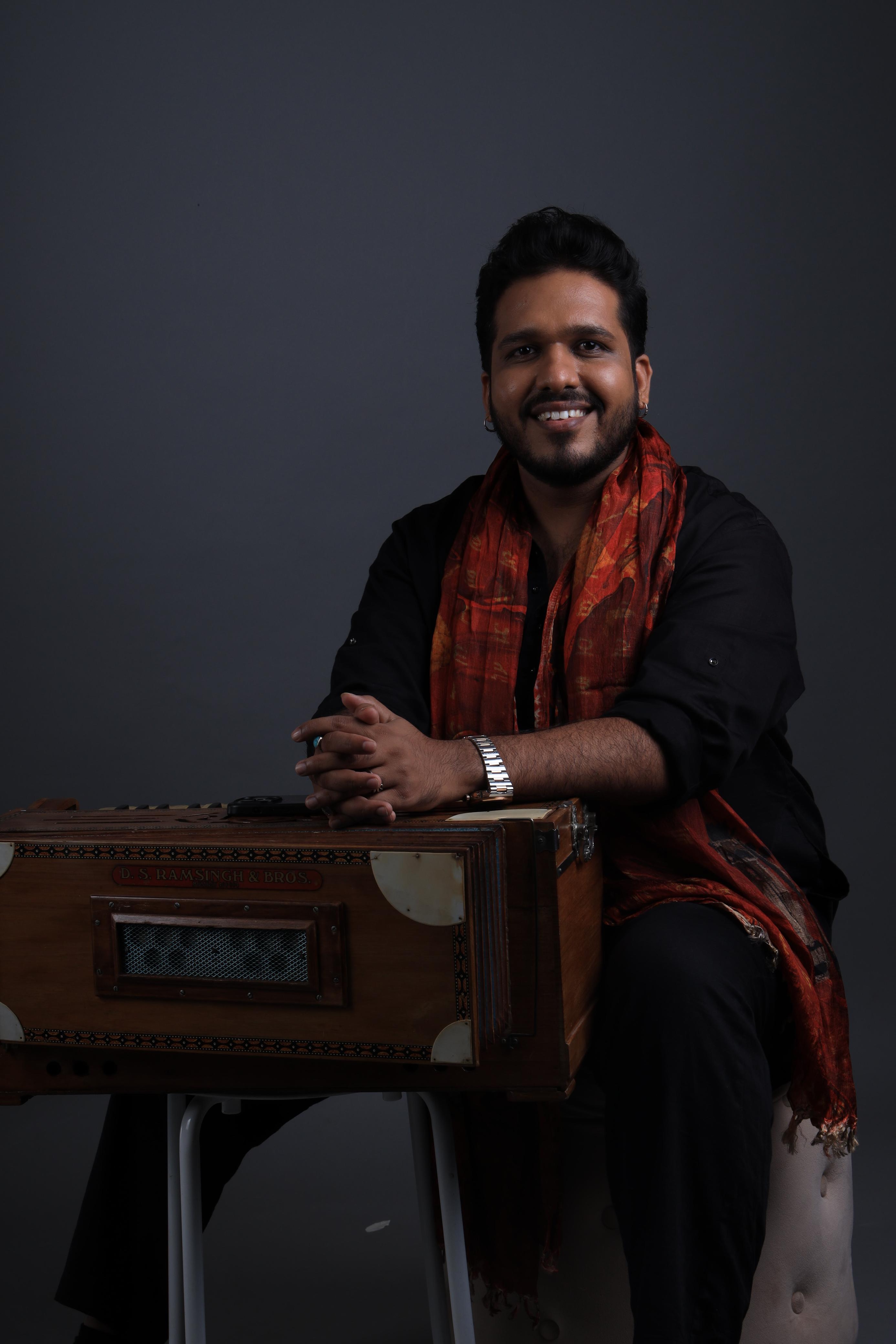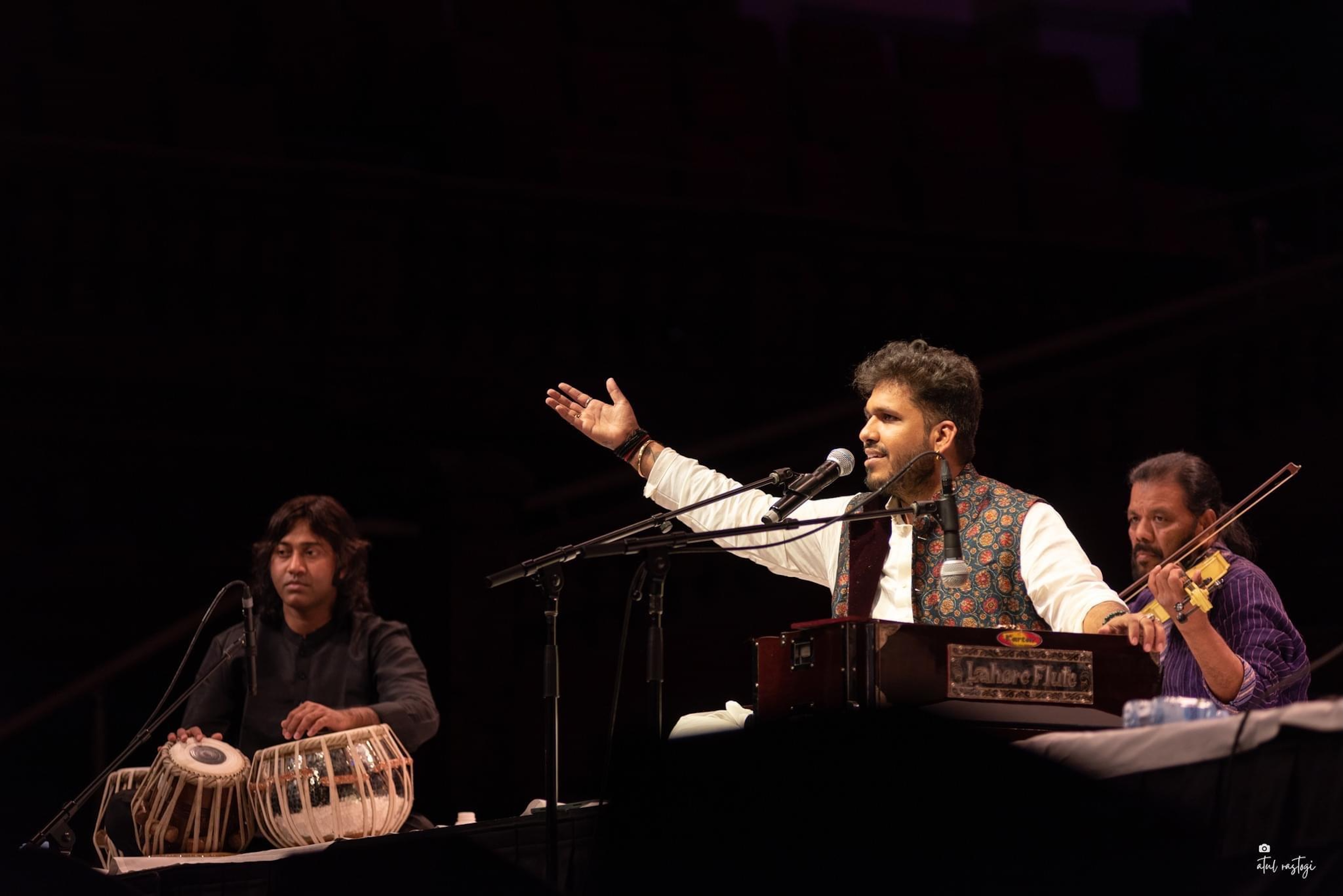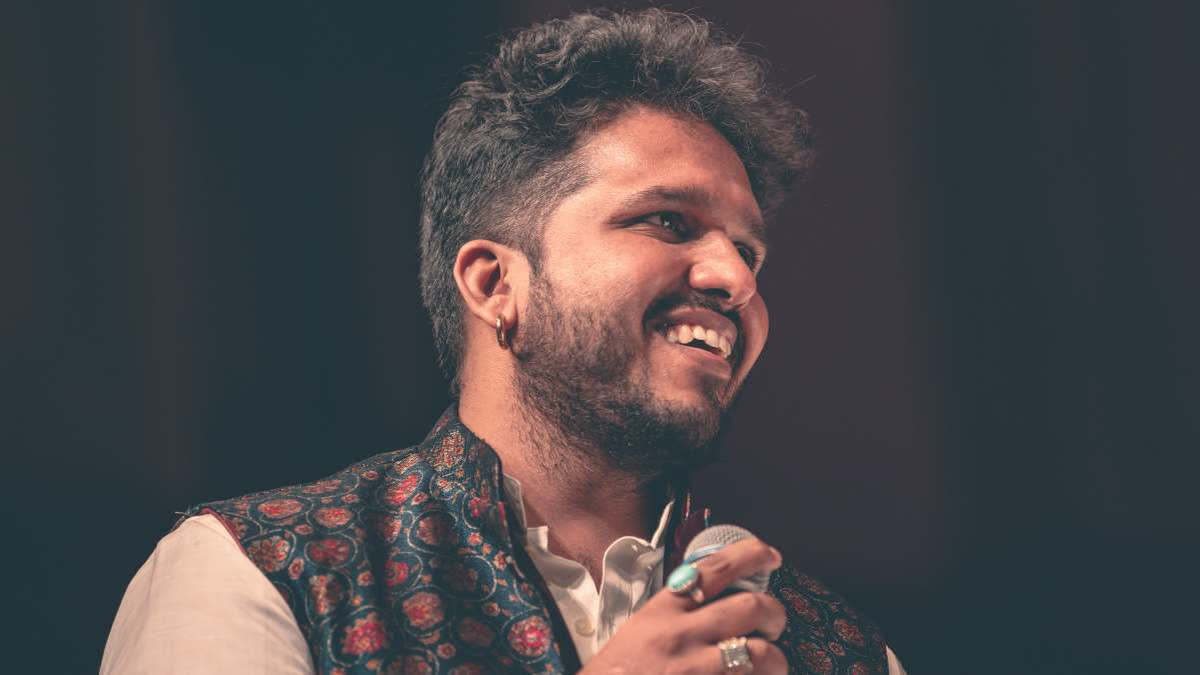Music has always been the essence of Bandish Bandits, a musical romantic drama web series that had its first season released in 2020. In its second edition that came out recently, the show blended Indian classical and Western contemporary music and it is the young musician Prithvi Gandharv who has emerged as a huge favourite among music lovers for his compositions -- Nirmohiya and Yaahin Rahiyo Sa. Melodies from classical traditions that Gandharv had composed on his piano in Ujjain a few years ago during covid today have become the soul of the series. Gandharv’s voice has seamlessly integrated with the fabric of Bandish Bandits Season 2, making him a household name among lovers of classical fusion. And Gandharv’s musical prowess isn’t limited to playback singing and composing, he’s a ghazal connoisseur, and a live performer who has shared the stage with legends like Ghulam Ali. He is excited about his upcoming US and Canada tour with legendary Ghazal Maestro Ghulam Ali, recounting the invaluable lessons he has gained from their past collaborations.
“The Bandish Bandit team had called me to be the voice of Radhe [the male protagonist and a young music prodigy] . I was called as a singer and not as a composer initially. I sang 16 bandishes in three to four meetings that I had with the team, including director Anand Tiwari and Akashdeep Sengupta [the creative force behind the music]. We used to sit for four to five hours and all those bandishes that I sang were composed by other composers. They loved my singing but they found that spark missing, they felt something was not appropriate in those compositions. We continued our conversations and they started digging deeper into my musical experiences. After I had performed various compositions, the director noticed how I naturally infused my own improvisations into each bandish. They felt I could also compose and asked me to share something original. I immediately thought of Nirmohiya, the composition I had created during the lockdown in Ujjain. One day, while sitting at the piano, the melody just came to me. The first words that naturally flowed were Nirmohiya. It was a simple yet deeply romantic piece in Raag Yaman. When I played the recording from my phone and sang it live, something clicked. Until then, I had been singing very intricate classical compositions, but Nirmohiya had a softness, a lightness—it was romantic and easy on the ears. That’s when the director felt that was it,” says Gandharv about him bagging the project.

Music came very naturally to Gandharv as his entire family is into music. He says, “Music happened the day I was born, it is in my blood. My grandfather, father, mother, sister... all are musicians. In fact, the instrument Bela Bahar was invented by our family. Yet one has to do the hard work, work on duniyadari [worldliness] and know how and what kind of music to present. You have to create other frills, you have the raw material but I took very long to learn how to execute and I am still learning,” says the young musician.
A protégé of A Hariharan, a playback, ghazal and bhajan singer, Gandharv says the music maestro fine-tuned his music skills. “Except for my mother there were no singers in my family. My grandfather was a great legendary composer, and sarangi and harmonium player, my father is a violinist but I needed a mentor for my singing. Hariharan-ji polished my singing skills though he rarely teaches people and I am fortunate to have him as my guru. The association with Hariharan-ji has been for almost 14 years but it was never one-on-one learning, I have had only three to four classes with him. It is only when I meet him in a party or if there is a project with him and I am spending time with him or when I am watching and listening to him perform. Those are the times, I imbibe his music. So it is more like a ruhani [spiritual or divine] way of teaching and learning. I was already a professional artist and was singing and touring but there was this hunger to learn more. Hariharan-ji sabotaged my emotions earlier as he rarely teaches and then I started doing music with his son. Soon after Hariharan-ji found me good with ghazals and that is how the guru found me,” says Gandharv who enjoys exchanging notes with his family. "There is a beautiful mahaul [atmosphere] at home, we polish each other's skills and share notes on music," he says.
Gandharv was barely 14 years old when he started performing and it was with Sanjay Leela Bhansali’s 2015 release Bajirao Mastani that he was introduced to popular commercial music. His song Albela Sajan was highly appreciated among the music connoisseurs and critics. “Bhansali sir was looking for a classical singer who could sing for recording and that is how my recording journey started,” says Gandharv.
Gandharv is widely recognized for his expertise in ghazals and sufi and when asked about his love for this genre in music, he says, “It is not that nobody is doing so let me do it, that was not the thought process. It was purely due to love for the subject. I love Urdu poetry, I love the sound and ghazals are musical and deep. If you put Aaj jaane ki zid na karo against five film songs, the former would win hands down. Ghazal has always attracted me, ghazal is a beautiful bridge between classical and commercial music. It is not so commercial and not so classical, you can do a lot with ghazals. I get a lot of freedom and I can express a lot in this genre. But when I started ghazal rendition at that time my generation did not like it, even all my singer friends found it very boring. They wondered who would sing ghazals with shawl wrapped around you and sitting on a harmonium. They found it uncool then and today it has become far more uncool. Yet, I feel I have inspired a lot of singers and a lot of them have turned into ghazal singers now.”

Recently, Bollywood has been reintroducing ghazal-like elements in mainstream music, blending them with modern styles in songs like Aaj Ki Raat and Besharam Rang, however, Gandharv feels these songs don’t come anywhere close to genuine ghazals. “These are ghazals presented in a different way. Actually these are item numbers made into a ghazal. These songs have the same melody. It’s great for the masses but I wouldn’t call these songs ghazals because they lack the core aesthetics of traditional ghazal music. Ghazals should retain their depth and essence and it is meant for a niche audience. If everything became too common, we’d lose that distinction. But I have no complaints about these modern melodies. They’re well-composed and enjoyable, but a true ghazal should evoke deep emotions, take you to the depths of love and longing. If a song doesn’t do that, then it’s not really a ghazal. But I am happy about this trend,” says Gandharv.
Growing up in the 90’s, Gandharv admits that he succumbed to popular Bollywood film music. “Yes, of course, I did get influenced by commercial film music. I wanted to become a musician and I found money was good. I wanted to sing and it began with live concerts with popular artists like Shreya Ghoshal but then I realised that my roots are classical, ghazal which comes naturally to me, hence, I went back to my roots. And what were those songs coming out in the 90’s? Bara Ana De …Aila upma aila, Takhtana takhtana, Ilu Ilu…These may be commercially hits but good songs were far and few and in the 2000 decade it went worse. Old music sounds were not leaving us nor new sounds were coming in. Seventies and 80’s were definitely better for music. Then it was A R Rahman who brought in the revolution with the introduction of world music and that changed the scenario,” says Gandharv, who took up ghazal singing in a full-fledged way from 2014-2015 onwards. "It was very difficult to sustain but I realised there was demand for it but hardly any supply. So, if you are different in that crowd of musicians who are only doing commercial music then you can somehow manage,” he further says.
It may be difficult reaching out to the wide audience for his genre of music and kind of singing but Gandharv believes in showing the other side and helping youth develop good taste. “Yes, most people like popular songs and cinema and it gets very difficult to reach out considering what the youth is listening to or the content they are consuming but if we keep supplying and delivering what is popular then that would be selfish on our part. I would like to keep producing music of a certain standard or else people will be addicted to crass content. A R Rahman, Shankar-Ehsaan-Loy, Pritam…they are doing some great work in the commercial area and I believe a certain section of youth do like listening to good tracks. Arijit Singh is my most favourite, he is such a beautiful singer. I would love to do what he is doing. I would never sing songs with lyrics and words like daru, ganja, ladki, gaadi…I can’t be doing such songs,” says Gandharv.
He furthers, “There have been quite a few challenging moments as a creative artist in over 20 years of my career. Every day is a challenge because I wanted to do music but on my condition. I could have made myself into a brand. I could have gone to gym, developed six pack abs and sung and danced on Mauja Hi Mauja in shaadis, marriage parties and earned big bucks but I wanted to present what I have to express and that is how generate revenue and that process took a lot of time. It is not just me, there are many artists like me and whoever takes this path it becomes very difficult. But you have to believe in yourself and stay focused. You can’t change yourself thinking if this is not working so I will do this. You can’t try this or that.”

However, for Gandharv, new avenues are opening up with the music of Bandish Bandits 2 getting wide appreciation. Since he has been into hardcore ghazals of Mirza Ghalib, Meer Taqi Meer ... “which was difficult for my generation to understand” it was important for Gandharv to find space in mainstream. “You get typecast, if you are singing ghazal people think you can only do that. I really wish I can sing absolute commercial music too as good commercial music always happens. If I get a good opportunity, I would love to sing something that is classical but presented in a mainstream and commercial way, I was looking for a commercial hit and now with Bandish Bandits' perspective about me among the makers is changing. Now I can see it in their eyes…the way they look at me … that this guy has something to express. I will never do music that is low in standard. Ghazal, sufi, classical, commercial…I like music that touches your heart and reaches your soul …it could be any genre, language or subject,” sums up Gandharv.
Read More
- Interview: How Sooraj Santhosh's Breakthrough Song in Prabhas' Darling Changed His Career Forever
- INTERVIEW | Hidayat Khan On His Latest Release 'Jai Hind', Music Shaping Social Consciousness, and More
- Interview | The Connection With The Audience In India Is Special: Robert Randolph, American Blues Musician



